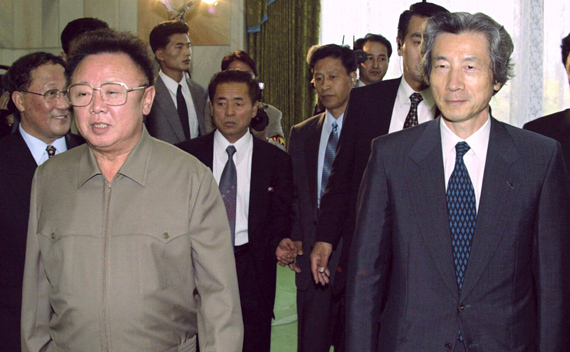Japan Responds to Kim Jong-il’s Death
More on:

The sudden announcement of Kim Jong-il’s death yesterday came just as Prime Minister Yoshihiko Noda and his colleagues in the Democratic Party of Japan were to speak at an afternoon rally. The prime minister instead convened an emergency national security council meeting, and later in a statement to the press suggested a mix of concern and caution. Noda warned the Japanese people that instability on the Korean peninsula could be a factor in the days ahead.
In the early hours, this raised both economic and security concerns as the ripples of response around the region began to be felt. The initial market responses in Asia were erratic, with both South Korea’s Kospi and Japan’s Nikkei responding to the news. As the U.S. and South Korean militaries moved into defense readiness, Japan’s military, the Self Defense Forces, were also put on alert.
Tokyo will be working closely with Washington, and working to be part of a regional response to the death of Kim Jong-Il. Japan’s foreign minister Koichiro Genba is now in Washington, and will be meeting with Secretary of State Hillary Clinton. Meanwhile, Prime Minister Noda has already spoken to South Korean president Lee Myung-bak, who was just in Tokyo over the weekend. This trilateral coordination between Tokyo, Seoul, and Washington has a strong precedent when it comes to coping with North Korea. China too has agreed to share information on what is emerging.
Kim Jong-Il’s death raises many of the unresolved challenges Tokyo faces in its relations with North Korea. Kim Jong-Il presided over a complex effort to normalize relations with Tokyo, an effort that created deep domestic divisions within Japan over its erratic neighbor. The North Korean test of an intermediate range missile, the Taepodong, in 1998 began a rethinking in Tokyo of Japan’s strategy towards Pyongyang.
For a time, creative diplomacy seemed to offer the possibility of normalization between the two Northeast Asian nations. Former prime minister Junichiro Koizumi in 2002 made a breakthrough visit to North Korea, concluding the Pyongyang Declaration with Kim Jong-Il that not only included a moratorium on future missile tests but also resulted in the acknowledgement and release of five Japanese citizens abducted by the NK regime since the 1970s. A second visit in 2004 brought home the family members of the previously released Japanese abductees.
Koizumi’s effort to negotiate with Kim Jong-il fell short of normalization. Domestic outrage in Japan over the abductions effectively constrained the ability of the Japanese government to follow up on the promise of the Koizumi Cabinet’s Pyongyang Declaration. Moreover, the resumption of missile tests in July 2006—and of course the first nuclear test by North Korea in October 2006—prompted Japan to work closely with the United States, South Korea, and others at the United Nations to sanction Pyongyang.
Yesterday, the former prime minister made a rare public statement after hearing the news of Kim’s death. A grave Koizumi expressed his wish that Japan and North Korea had concluded their interrupted process of normalization while Kim Jong-Il was still alive, suggesting that the prospects for pursuing Japan’s interests with a new regime in the North could be even more difficult.
Also last night, the unresolved fate of twelve Japanese thought to have been abducted by North Korea returned to the forefront of Japan’s diplomacy with the North. Family members of several of the Japanese abductees visited the prime minister’s office to demand that Japan’s government continue its efforts to find them.
In these early hours of Japanese reaction to Kim Jong-il’s death, Prime Minister Noda ’s approach of working closely with Washington and Seoul to ensure Japan is prepared for any instability is wise. A well coordinated yet calm response is not only in Japan’s interests, but remains the best strategy for ensuring stability on the Korean peninsula as the region waits to see how events unfold within Pyongyang.
More on:
 Online Store
Online Store
